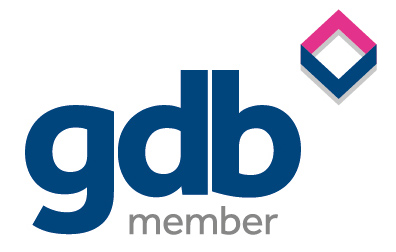Harvey John
Unit 2 Ferry Wharf
Hove Enterprise Centre
Basin Road North
Portslade, East Sussex
BN41 1BD
We are currently in the midst of a long-overdue revolution in flexible working. There are many ways of defining the act of flexible working. This includes the recent phenomenon of agile working, which focuses more on the physical aspects of expanding our working styles, and hybrid working, which facilitates productivity regardless of location. This confusion is mirrored by the fact that no two companies have identical policies on the matter.
So, what is the key to universal acceptance of these flexible working arrangements?
As the year unfolds, days become shorter, and working hours grow seemingly longer due to leaving the office after the sun sets.
As work consumes the lion’s share of our waking hours, advocating for a healthy balance between professional and personal lives is increasingly important. This month has seen several global and national initiatives, such as the WHO’s World Mental Health Day and the UK’s Work Life Week, aimed at promoting this balance. While these campaigns are imperative in terms of raising awareness, an ingrained bias remains against flexible working.
This is where the newly coined term ‘flexism’ comes in.
What is flexism and how does it affect us?
In simple terms, flexism is the prejudice against flexible working arrangements and those who use them. Flexism is subtle, but it’s particularly evident in the recruitment industry, with only 30% of job vacancy advertisements in the UK mentioning the ability to work flexibly.
Historical context is extremely relevant in the case of flexism. In a patriarchal society that often wavers in its stance on minorities, advocating for widespread acceptance of flexibility is challenging, as they traditionally did not benefit those in power. The history of this bias is firmly rooted in sexism, though there is hope in terms of progression as the right to flexible working in the UK has now been extended to all those who require flexible arrangements. Essentially, those who feel the guilt of working atypical hours to remain productive while tending to commitments within other aspects of their lives may now elect to adapt their working hours accordingly.
Flexism is a relatively new term, coined by social entrepreneur and flexibility advocate Karen Mattison, and unfamiliar to most. It gained attention through recent media, particularly in writer Megan Conner’s article “The New Part Time” in Red Magazine. This introduced the term to an important section of its target demographic—those who weren’t actively searching for it.
Who is really affected by flexism?
In short, we all are. The statistics regarding flexism in practice are somewhat surprising in terms of the demographics affected, as men are twice as likely to have requests to work flexibly denied. As aforementioned, the consensus would be that the bias against flexible working is also a bias against women, due to the historical connotations of their working less than men.
As established, flexism stems primarily from prejudice against women due to society’s perception of them as the ‘caregiving’ gender. This is implied by British legislation that perpetuates the perception of hybrid working as an effeminate or parental necessity; the right to request flexible working has been in place for 20 years now but was initially only available to parents and carers, of which women make up the majority. Furthermore, stereotypical expectations on a general social level mean that men are uncomfortable asking for flexible working arrangements. This is clear when considering the legislation surrounding men’s rights in terms of having children, as paternity leave typically lasts a fortnight, and shared parental leave was only introduced during the last decade.
In addition, a brand new cohort of workers is becoming familiar with the notion of flexism. As they begin to join the workforce, members of Generation Z are being met with resistance when it comes to flexible working requests. Despite young people being radically open about their mental health diagnoses and neurodivergence in a way that society has not experienced before, many workplaces are unfamiliar with this level of hybridity. After all, the concept of an office environment negatively affecting productivity would seem alien to some, though this is the reality for many individuals suffering from mental illness.
Not to mention those who simply want to work flexibly because it allows them more freedom to live however they wish, regardless of their age or generation. Despite its original goal of eliminating gender bias, the term “flexism” highlights that prejudice against flexible working affects various groups. The reality should be a universal acceptance of flexible work arrangements, regardless of the reasons behind them.
Flexism through the lens of recruitment
Staying abreast of job market trends is an essential responsibility for recruiters. They must understand the evolving needs of clients and candidates, adapting their approach accordingly. Flexible working is certainly a hot topic in the recruitment world and has been for quite some time. With more firms relaxing the rigidity of their working hours and office attendance in favour of hot-desking and job-sharing. This becomes crucial in light of a common challenge faced during recruitment: candidates often expect a top-tier flexible working arrangement, having experienced it in their current roles. Naturally, they are hesitant to compromise on this aspect, and frankly, I wouldn’t expect them to.
Recruiters might not be familiar with the term “flexism”. But, if you explained the concept, they would probably respond with a weary sigh or a resigned nod of agreement. It may seem absurd that employers would mandate office hours in a post-pandemic world. But this is the unfortunate reality of the corporate model.
Flexible working should be embraced. Not only to support those with caregiving responsibilities, but also to eliminate the unnecessary burdens of commuting. Working flexibly helps you cut down on your carbon footprint and save money on travel and urban expenses. It seems that many firms agree, as there seems to be a definitive shift occurring in the form of office vacancy rates.
Recruiters value clients with extensive hybrid working policies and a willingness to consider reasonable adjustments. These factors satisfy job seekers and, in turn, all those involved in the hiring process.
What can I do to avoid flexism?
There is hope in terms of combating flexism on a larger scale. The Employment Relations Bill received its Royal Assent this year, meaning that our rights to request flexible working arrangements are improving. Those in positions of power are beginning to recognise the increase in productivity that is likely to result from a relaxation of traditional working measures, which is hopeful.
The road to combating flexism is a long and windy one, now picture a fork in the middle of it. Left is the way you’ve been going—simple but ineffective as you’re unable to keep up with life’s demands. Right is a gnarly path. Advocating for yourself and securing a better working arrangement can be challenging. But the process runs much more smoothly in the long run. A common obstacle is the belief that flexible working is only for parents. Another challenge is the reluctance to recognise mental health as a valid reason for seeking flexible work arrangements. These attitudes hinder the broader adoption of flexible work arrangements. Wouldn’t you rather take the latter, knowing the outcome will be so much more beneficial?
Read the second part of this blog here. In conversation with non-practicing solicitor Hayley Rose, our head of Legal recruitment, we explore what flexism means in both industries.
For expert career advice, reach out to Hayley Rose. Or, check out the Market Reports section of our Media Hub, where we regularly share industry insights and research projects.
Author

Chloë's responsibilities encompass candidate sourcing, market research, trend analysis, and content development, all of which contribute toward elevating Harvey John's dedicated legal recruitment division and enhancing its sincere reputation for achieving success through clarity and expertise.







